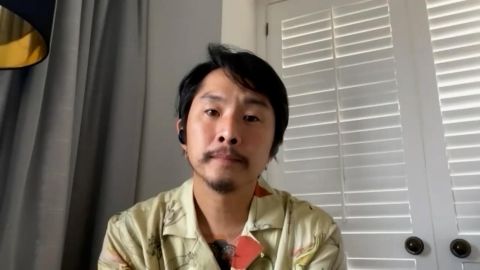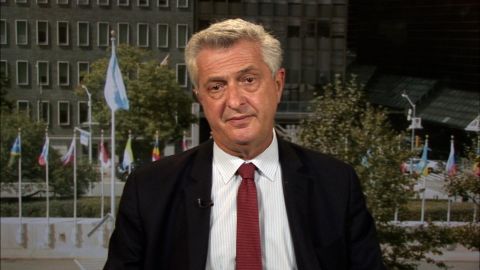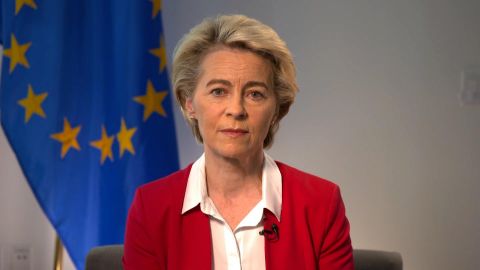Read Transcript EXPAND
CHRISTIANE AMANPOUR: Just tell me from your own eyes and what you saw there what people are going through right now.
FILIPPO GRANDI, UNITED NATIONS HIGH COMMISSIONER FOR REFUGEES: The humanitarian situation needs to be addressed very quickly. It’s not new, of course, but we have come — it has developed over the years of difficult access. Now, paradoxically, perhaps, there is more security in Afghanistan than we have seen in a long time. The fighting between the Taliban and the previous government has ended. So there is a space at least to expand quickly humanitarian operations. And the U.N. humanitarian agency, mine, UNHCR, and others, which have not left Afghanistan — we have never left Afghanistan, even during the difficult days in August — we have the infrastructure and the capacity to step up quickly. And the Taliban, with whom I have spoken during my recent visit in recent days, are ready to give us that space and that security. So we need to dive into that space and try to meet the urgent needs before winter starts, which is in a few weeks, literally, in the country.
AMANPOUR: So, what exactly do you need? I mean, we see pictures of tents. We heard Ms. von der Leyen talking about clean water, clean food. We have seen our own reporters there talking about the most horrendous sort of so- called shelters that are popping up around Kabul, as people are trying to get out of Taliban areas and try to seek some safety. What exactly do you need, first and foremost? How much do you need from the international community in terms of tonnage or money?
GRANDI: Well, Christiane, I think you’re right. The needs are big. Look, just from the perspective of my organization, there’s 3.5. million displaced people just displaced by violence and conflict, 500,000 recent ones. They need shelter. But the rest of the population needs everything. Food is a big priority, medical care. Dr. Tedros, the head of WHO, is in Afghanistan as we speak. We’re really keeping the pressure and multiplying the initiatives. We need money, first of all. The secretary-general, the other day, launched an additional appeal for $600 million. It was well-subscribed. We need those pledges to come online very quickly, to be realized very quickly. But we need to sustain this humanitarian effort in the medium term. We have a history in Afghanistan of getting resources when there is an acute crisis, and then those resources dry up. We cannot afford that now, because discussing with the Taliban on this, but also on all the other issues, women at work, education of girls, rights of minorities, will be complex and long negotiation and discussion. And we need to conduct it in a space that does not have a basic humanitarian crisis.
About This Episode EXPAND
The United Nations General Assembly week has kicked off in New York. The President of the European Commission and the UN High Commissioner for Refugees each join Christiane to discuss. Plus: Filmmaker and actor Justin Chon discusses his new film “Blue Bayou,” and singer/songwriter Yola explains the inspiration behind her new album “Stand for Myself.”
LEARN MORE



